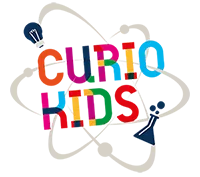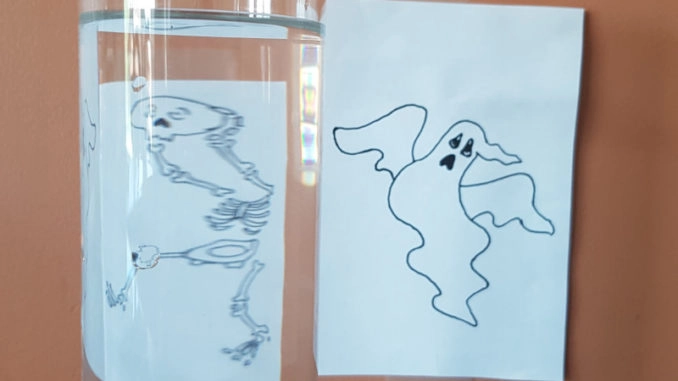
Using the properties of light to create illusions is a lot of fun. Have you ever noticed how images appear differently through a glass of water? This phenomenon is related to the refractive properties of light, an ability to change direction when it passes through another medium.
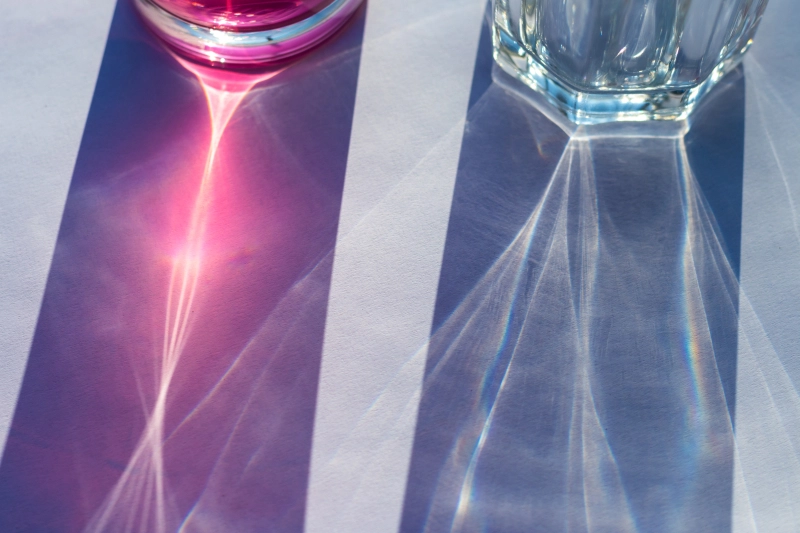
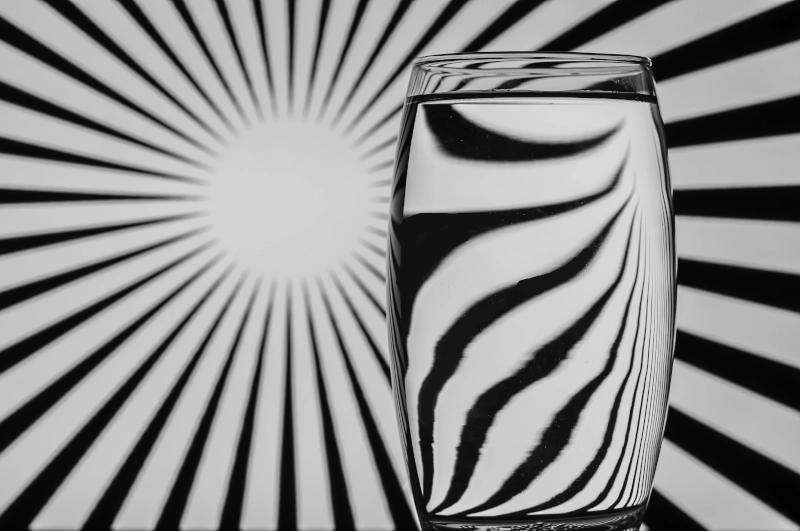
You will need:
- Some sand
- A clear long drink glass
- A drawing of your choice
- Adhesive paper
- A carafe of water
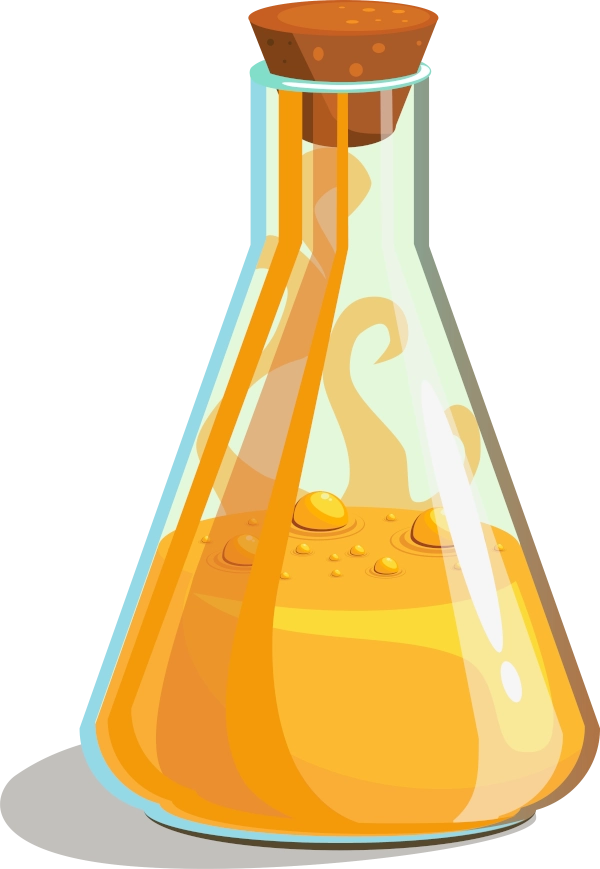
From 4 years old

Difficulty : easy

Let's experiment
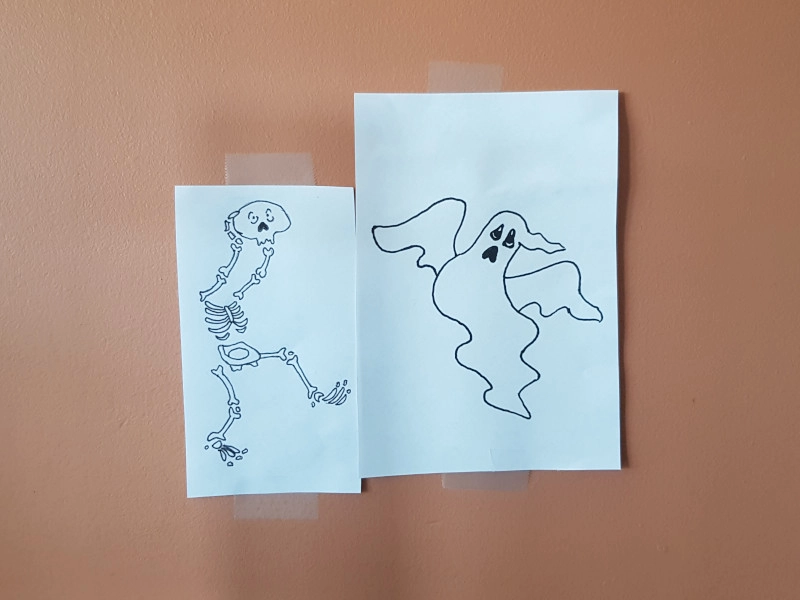
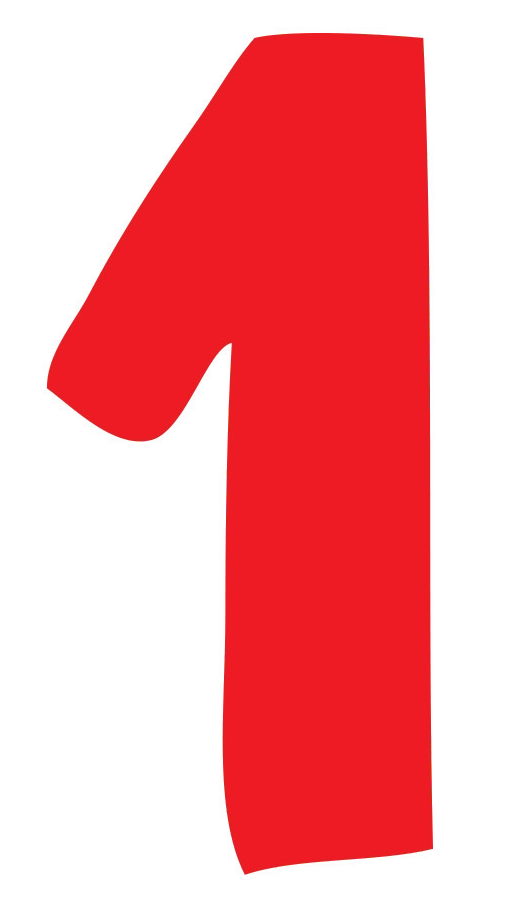
Pin your drawing to the wall. It should not be more than 2 in wide
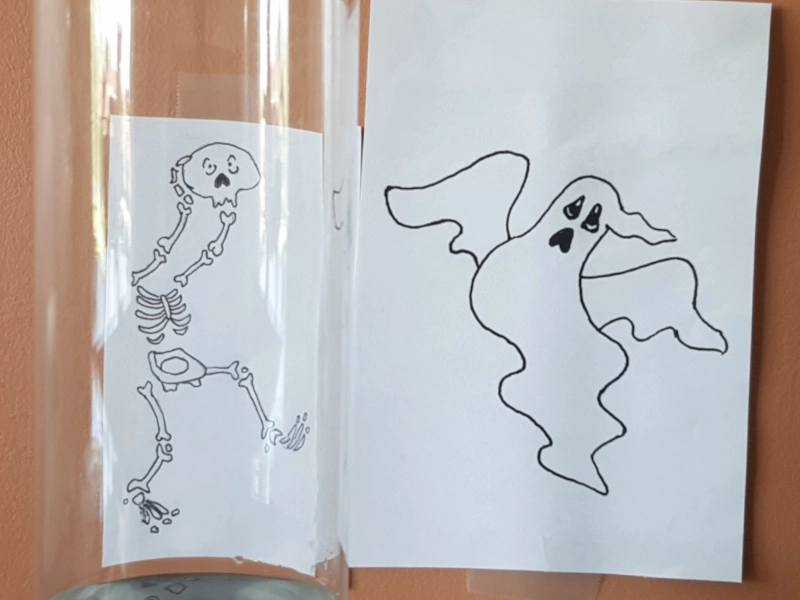
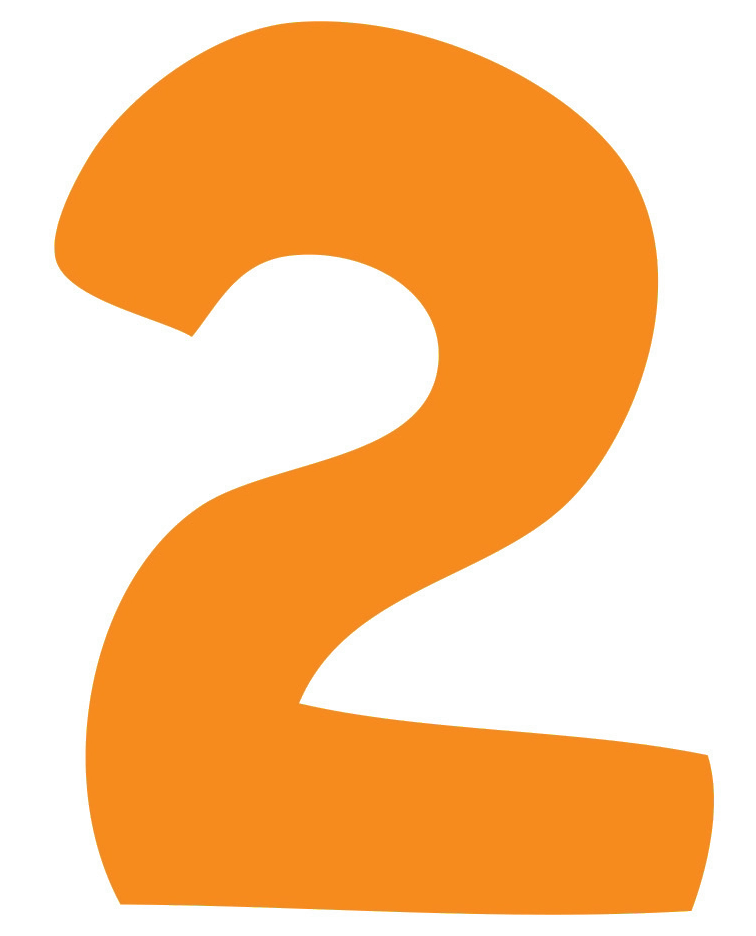
In front of your drawing, place your empty glass at a distance of 4 in.
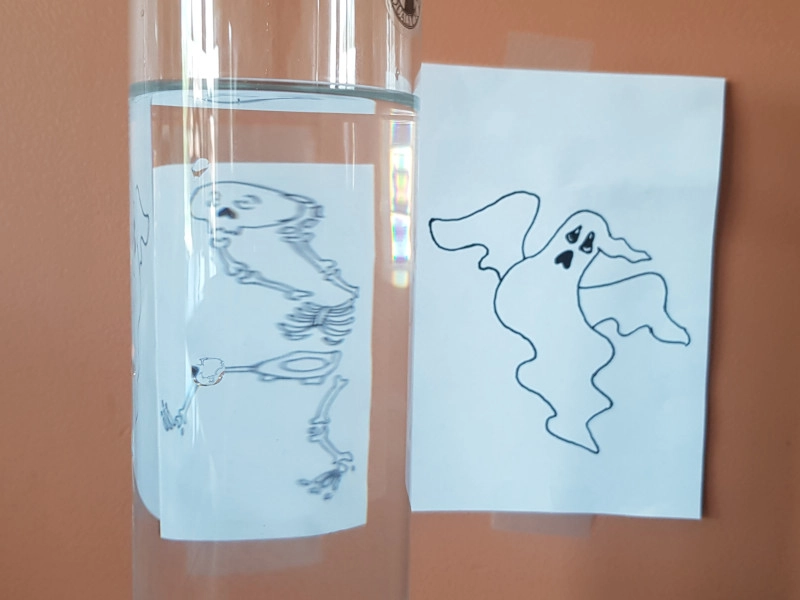
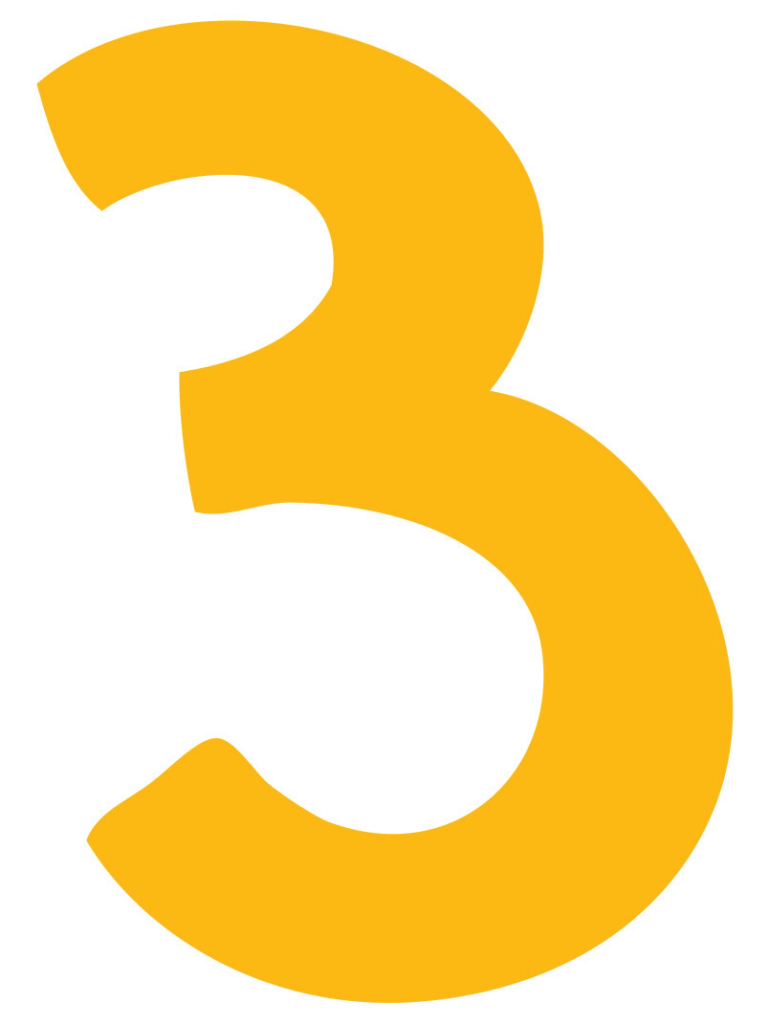
Now look at your drawing through the glass and fill it with water until the level is higher than your drawing. What do you observe?
Understand the experiment
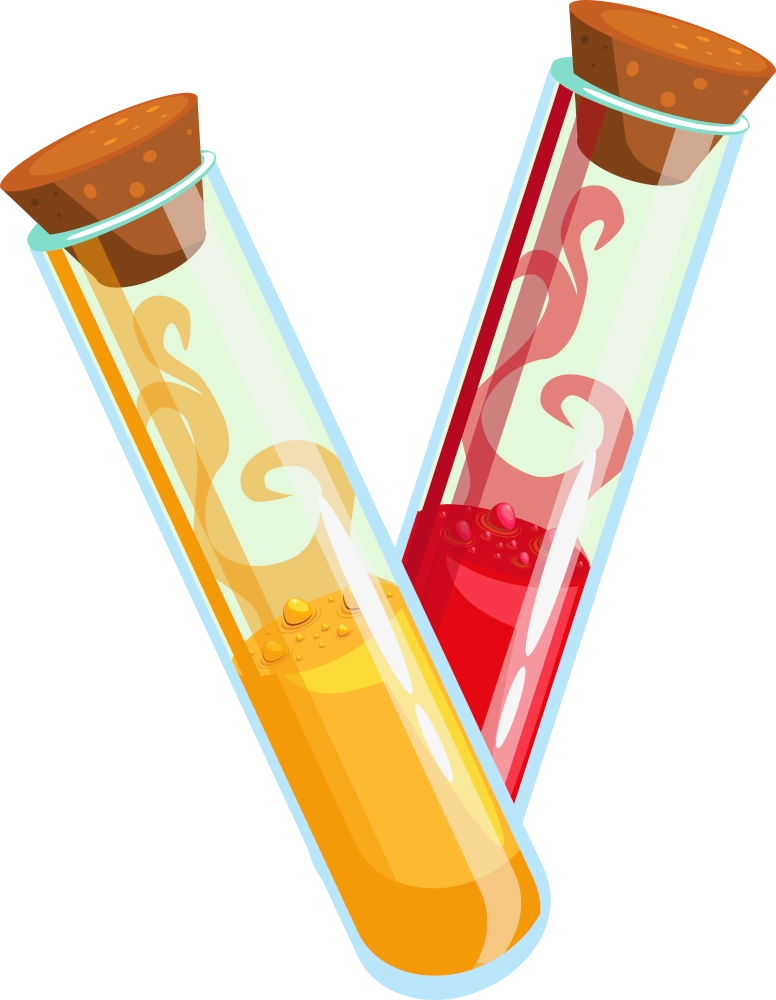
The light is bowing
Magic? No, it’s optics.
You know that light travels through air as well as through water. But if the water is transparent, it’s also much denser. The molecules are much closer together than in air.
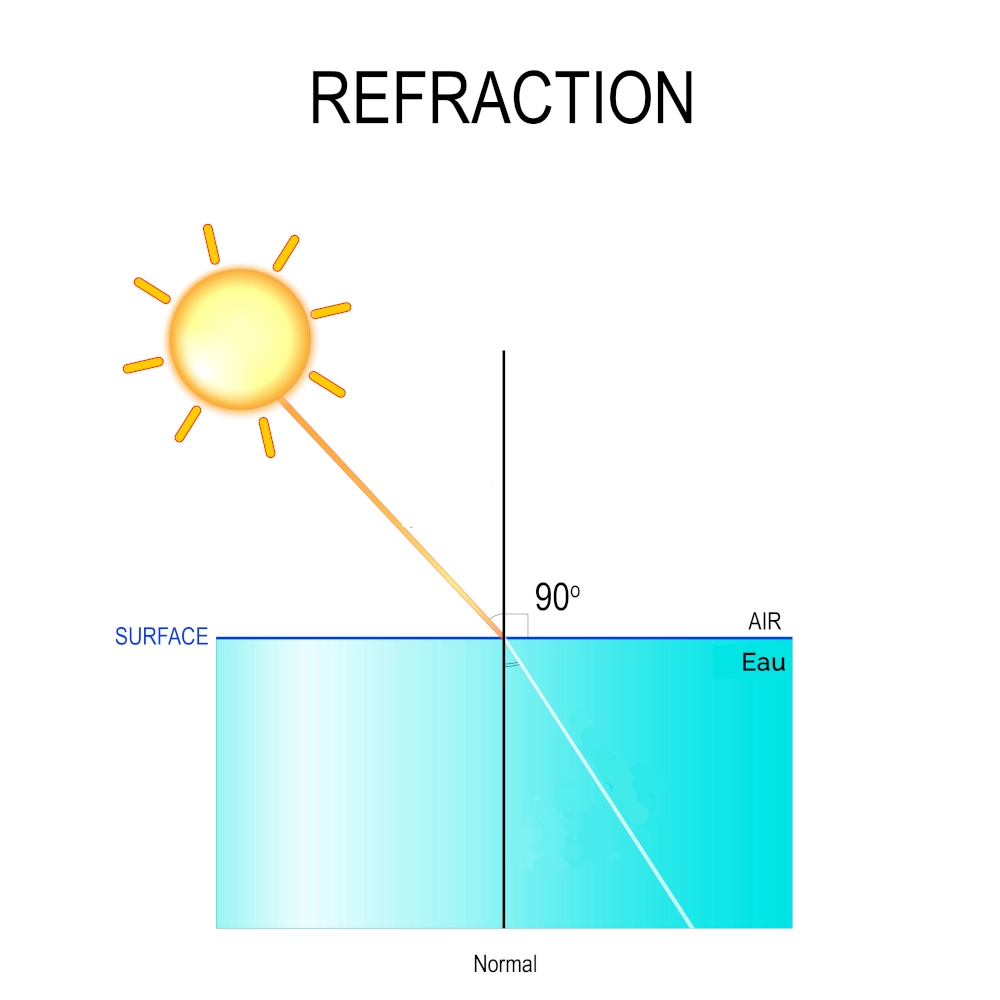
As a result, when light passes from air to the aqueous medium, it changes direction. This is called light refraction.
When the light has to travel through a cylindrical glass, it bends to enter the glass of water, and bends again when it leaves the glass of water.
Depending on the distance between the drawing and your glass, your image can turn completely around the vertical axis.
Did you know?
By exploiting the refractive properties of light, scientists have been able to create contact lenses to relocate light to the retina of people with impaired vision.
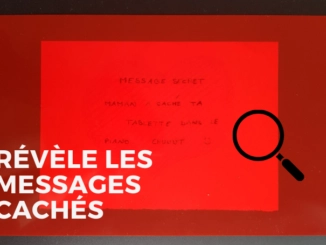
Decode messages with a red filter
Do you want to send secret messages to your friends, without anyone else being able to read it? Or even send a secret invitation to a lover? Play with light and color transmission to hide your messages. It’s your turn to play! […]
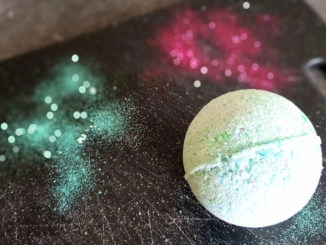
Make bath bombs at home
A bath is even more fun with bath bombs that explode and fizz. It’s easy to make it yourself, in the colors of your choice and even with the fragrance you like. Do you want to add a festive touch? You can even add biodegradable glitters for a sparkling effervescence. […]
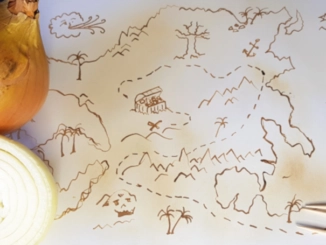
A treasure map with invisible ink
Invisible ink is very useful for drawing treasure maps or writing secret messages. Only those who know chemistry will find a way to reveal your message. Let’s use onion juice to prepare the invisible ink. […]
